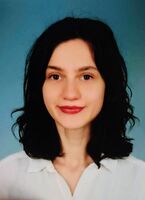Breast Cancer
PROTECT women by PReventiOn and early deTECTion of breast cancer initiation – cellular and molecular effects of reducing breast density.
The PROTECT project is a translational concept to elucidate the cellular and molecular mechanisms behind potential breast cancer preventive therapies. This innovative study design bridges an ambitious clinical trial with detailed functional laboratory experiments.
Breast cancer is the most common cancer in women worldwide with a steady increase in the number of new cases diagnosed. Breast density is associated with an increased risk of breast cancer and the local microenvironment in the breast tissue is known to significantly impact on breast cancer initiation and progression. Thus, if breast density can be diminished, the risk of breast cancer may be reduced simultaneously. To target breast density, a comprehensive molecular understanding is required though novel functional models.
The PROTECT project involves experimental projects using both 2D- and 3D models simulating more or less dense breast, which are treated with a panel of suggestive breast density reducing drugs. The effects hereof are assessed by means of proliferation and viability patterns, extracellular matrix modulation, adhesion, and migration. The clinical part of the PROTECT program includes both an epidemiological-oriented part and translational studies performed within an ongoing clinical trial. A large clinical study of around 70,000 healthy women whereof 600 women subsequently developed breast cancer form the basis of this part of the PROTECT project. Mammographic density measures and potential drug exposures will be associated to relevant tumor markers, identified in the functional studies, in the subsequent breast cancer. These studies will reveal association patterns between breast density, drug use and expression of density-associated biomarkers.
Importantly, potential drug induced changes in breast density will be evaluated in paired biopsies from normal breast tissue sampled pre- and post treatment. These unique normal breast biopsies will be evaluated for density associated changes, thus making it possible to investigate associations in vivo, which have previously been detected in the laboratory models.
Significance
These studies will provide functional insights into drug-induced effects on the cellular compartments and the extracellular matrix composition of the microenvironment that may modify breast density and risk of breast cancer. Additionally, it may provide biological support to our already launched clinical trial aiming at reducing breast density and in the long run – reduce breast cancer risk.



